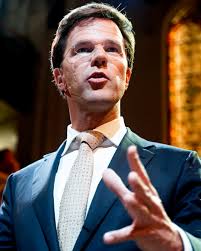Rejection of the Ukraine-EU Treaty by the Netherlands: A Blow to the Unity of the EU
Dutch voters rejected a treaty calling for closer economic and political ties between the European Union and Ukraine in a referendum held on April 6. Although the wide-reaching political, trade, and defense treaty had been approved by all EU nations, including the Netherlands, it was rejected by Dutch voters by a 64-36 margin. According to Reuters, voters expressed their opposition not only to the treaty, but also to the way the EU addressed issues such as the migrant crisis and economic policy.

In spite of the outcome of the referendum, Ukraine President Petro Poroshenko said on April 7 that “under any circumstances we will continue to implement the association agreement with the European Union including a deep and comprehensive free trade agreement.” Geert Wilders, the leader of the Netherland’s opposition party, which maintains an anti-EU and anti-Islam agenda, tweeted: “The Dutch people said NO to the European elite and NO to the treaty with the Ukraine. The beginning of the end of the EU.” Dutch Prime Minister Mark Rutte stated that time will be needed to “figure out whether and how he can alter the treaty in a way that could satisfy all parties.”
The Dutch people’s rejection of the treaty serves as another example of the anti-EU sentiment that has been spreading throughout Europe since 2000. Plebiscites at the turn of the century led Denmark and Sweden to reject the Eurozone; additionally, Irish, French, and Dutch citizens have often rejected legislation that would give greater power to Brussels. The outcome of the Dutch plebiscite contributed to concerns regarding the unity of the EU, as its outcomes could be exacerbated by the UK referendum only two months away.
